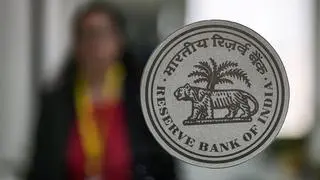Any spike in oil prices due to factors such as the global slowdown and geo-political conflicts, is unlikely to pose major downside risk to the Indian economy in FY25, said Chief Economic Advisor V Anantha Nageswaran.
“The cooling of economic activity will happen first before a decline in global interest rates happens. Therefore, I do not think energy demand will necessarily become sufficient enough in the course of 2024 to see oil prices spike up,” he said at SBI’s Banking and Economic Conclave.
While the geopolitical situation and cargo movement in the Red Sea are relevant factors, they are likely to be off-set by slowing demand, Nageswaran said, adding that if crude oil prices rise, they will further cool down the economic activity.
The Indian basket of crude oil prices, which had been moderating for more than a year, trended up in July-October 2023 before declining again in recent months, as per RBI’s Financial Stability Report for December 2023.
Continuation of production cuts by OPEC+25 and mounting uncertainties stemming from the conflict in West Asia could keep prices volatile in the near term and pose risk to the inflation outlook, the report said, adding that a 10 per cent increase in oil prices from the base level of $85 per barrel could weaken domestic growth by 15 bps and increase inflation by 30 bps.
Sustained growth
As such, India’s trade deficit has been contained and lower in the fist eight months of FY24 compared with the previous year, largely led by robust inward remittances and services exports.
“A combination of FPI and FDI flows has been more than adequate finance the current account balance despite the rise in oil prices last year, which of course has moderated this year. Investment inflows and the central bank’s reserve management has allowed us to build FX reserves to the tune of $600 billion giving us nearly 11 months of import cover,” he said, adding that this coupled with India’s low external borrowings are supporting economic resilience.
Even so, it is necessary for India to grow on a sustained basis for a long period of time to prove its economic performance to the world, he added.
“It’s important to ensure a long period of sustained economic growth, sustainable in a financial sense of economic growth, before we raise our heads and talk about it assertively. We have to demonstrate the kind of growth performance for a long period of about a decade, if not longer, of 6.5-7 per cent before we announce our arrival,” he said.








Comments
Comments have to be in English, and in full sentences. They cannot be abusive or personal. Please abide by our community guidelines for posting your comments.
We have migrated to a new commenting platform. If you are already a registered user of TheHindu Businessline and logged in, you may continue to engage with our articles. If you do not have an account please register and login to post comments. Users can access their older comments by logging into their accounts on Vuukle.